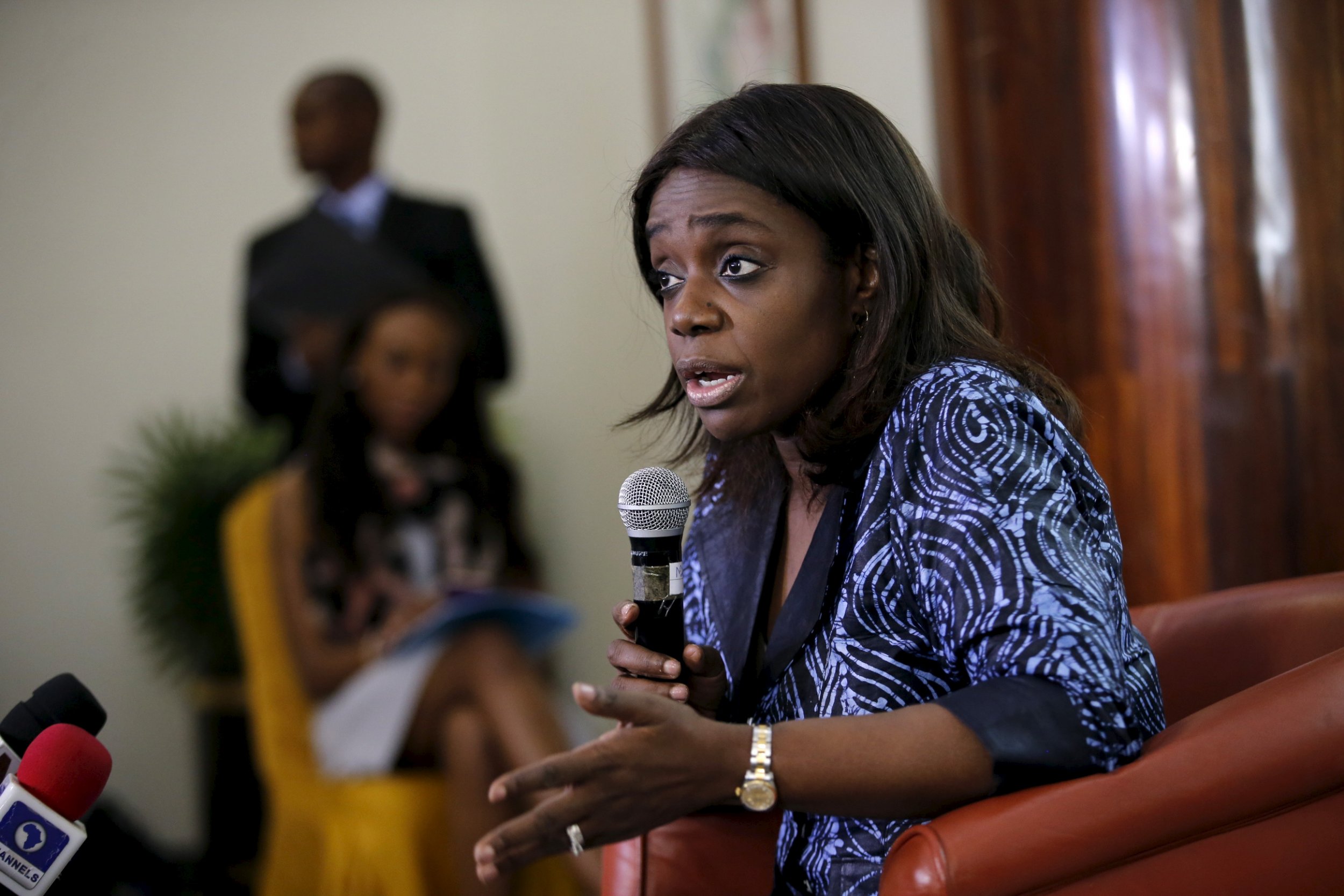
Nigeria's economy is "technically in recession" but citizens should not be worried about the future, according to the country's finance minister.
In a briefing to the Nigerian Senate on Thursday, Kemi Adeosun said that while "things are tough" for the West African state, the administration of President Muhammadu Buhari was taking steps to resolve an economic crisis prompted by an over-reliance on oil. "Nigerians should not panic. We are still the biggest economy in Africa and we will still get better," said Adeosun, according to the Senate's Twitter account.
Nigeria's economy has been squeezed due to the global fall in oil prices combined with a resurgence of militant attacks on oil pipelines in the Niger Delta, which have limited production. The International Monetary Fund (IMF) predicted on Tuesday that the economy would contract by 1.8 percent in 2016, which would make it the first time the country has entered recession for more than 20 years. The international body had predicted in April that Nigeria's economy would grow by 2.3 percent but said the forecast had been cut "as the economy adjusts to foreign currency shortages as a result of lower oil receipts, low power generation, and weak investor confidence."
Inflation has also hit 16.5 percent, the highest recorded in Nigeria since June 2005,and has been blamed on rising prices of energy and imported items. Militant attacks by group such as the Niger Delta Avengers have slashed Nigeria's oil production, making fuel harder to come by, while the country banned the importation of a range of items, from footwear to ballpoint pens, in an effort to protect local producers.
Adeosun said she was unconcerned by the IMF's predictions. "We cannot begin to somersault when somebody from abroad says something or gives an opinion," said Adeosun. The finance minister reiterated her commitment to implementing the country's record budget —which was passed in May and to triple capital expenditure as part of a record 6.08 trillion naira ($20.2 billion) financial plan—and said that the government had reduced spending on salaries from 165 billion naira ($550 million) to 159 billion naira ($530 million). Buhari has launched a crackdown on corruption and Nigeria has culled tens of thousands of ghost workers receiving salaries from the state.
The country's economy is heavily dependent upon oil, which makes up more than 90 percent of the value of Nigerian exports, according to OPEC.
Uncommon Knowledge
Newsweek is committed to challenging conventional wisdom and finding connections in the search for common ground.
Newsweek is committed to challenging conventional wisdom and finding connections in the search for common ground.
About the writer
Conor is a staff writer for Newsweek covering Africa, with a focus on Nigeria, security and conflict.
To read how Newsweek uses AI as a newsroom tool, Click here.








